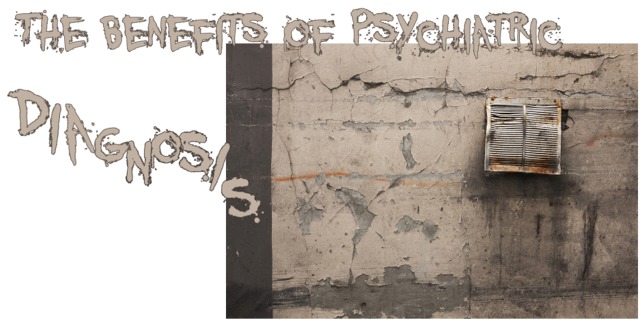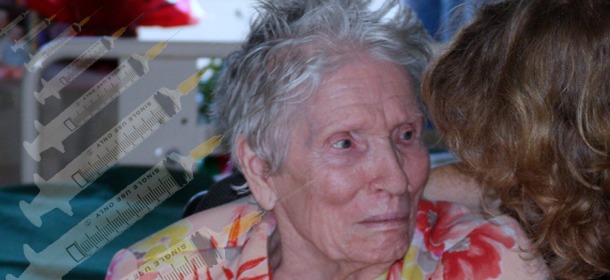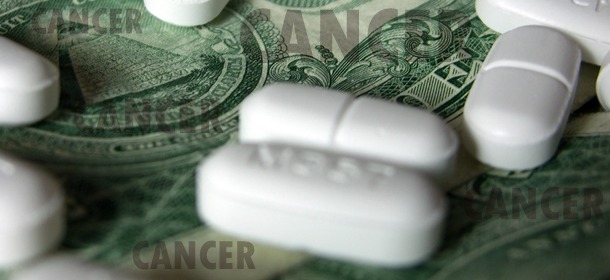Featured
Diagnosis from a Psychiatric Patient’s Point of View
Dennis Dodson shows us some of the harm that can be done by the very act of psychiatric diagnosis, which has no purpose other than to push pharmaceutical drugs and other devastatating treatments on patients—and then courageously explains how recovery is possible, but not through psychiatry.
by Dennis Dodson, Mental Health Advocate
I took a quick look at the definition for diagnosis in Wikipedia and Merriam-Webster dictionary.
Wikipedia stated the word diagnosis comes from an ancient Greek word that means discernment. Their definition stated that it’s the identification of the nature and cause of anything. It added that diagnosis is used in many different disciplines with variations to determine cause and effect relationships. For example, in systems engineering and computer science, diagnosis is typically used to determine the causes of symptoms, mitigations for problems, and solutions to issues.
Merriam-Webster states that diagnosis is simply “investigation or analysis of the cause or nature of a condition, situation, or problem”, and “the art or act of identifying a disease from its signs and symptoms”.
Not only do I own my problems, but they’re all paid for!
I looked at the definitions to see how a diagnosis, which is a fantastic tool for seeking solutions to a vast array of problems, fits into my past experiences with the mental health treatment system in Tennessee. I immediately realized that none of my psychiatrists from 37 years of “mental health treatment” had ever even attempted to properly utilize the tool of diagnosis.
Not once had any of my psychiatrists attempted to determine a single underlying cause of any of the symptoms I relayed to them. Not once had any of them identified a disease or a defect that caused my symptoms. They all simply looked into the DSM, the Diagnostic and Statistical Manual of Mental Disorders that was out at the time and gave me a diagnosis and pills, pills, pills.
Medication management. Refills. Medication changes. Medication increases. Medication adjustments. Never attempted to discern what was causing my issues such as rapid speech, not sleeping, loss of appetite, delusional thoughts, racing thoughts, and sometimes periods when I was depressed or anxious or moody.
They simply “diagnosed” me as Bipolar Disorder. Then came the medications and all their adverse effects and complications. To make a long story short, the psychiatrists failed me. The psychiatrists didn’t help me at all in even determining what was causing the “disorder” that they gave me as a label, which might as well have been tattooed on my forehead to brand me for life.
Had they properly used the tool of diagnosis to discern what was the cause of my disorder, they could have very easily found that my moderate use of LSD at age 17 and again numerous times at age 37, being raised in a dysfunctional family, 35 years of pot smoking, poor relationship choices ending in several divorces, alcohol abuse for 35 years, cigarette smoking for 35 years, poor nutrition and poor diet choices, no coping skills and a couple of falls where I landed basically on my head might have directed them to give me a diagnosis of “lucky to still be alive and able to tie my shoes” instead of Bipolar Disorder I.
I had disorder in my life big time. Very little order actually. Stress and worry and conflict were so evident that no one needed to go to college for 7 years to see I was in disorder mentally and psychically. The psychiatrists didn’t ever do any lab work or take any x-rays, they didn’t even ask very many questions. They simply got out their Bible, the DSM of the day, and labeled me as having a mood disorder. Bipolar I.
With only a high school education and the desire to put my disordered life into order, in just 4 years I diagnosed my own situation and discerned what I needed to do to bring order where there was disorder, balance where there was none, and peace, harmony and emotional stability to my life. I developed good diet, sleep, and nutrition habits. I taught myself how to deal with negative thoughts. I learned to reduce or eliminate stress. I avoid toxic people. I attend support groups. I advocate for better mental health treatment in Tennessee.
I don’t use the tool of medication management anymore. This has distressed my last psychiatrist quite a bit. He’s showing symptoms of an anxiety disorder and I just wonder if he’ll get his DSM out and label himself or if he’ll just have a few extra drinks when he goes home from his job as a pill dispenser.
Wellness and good mental health are possible for the majority of people tagged as Bipolar, but it does mean taking personal responsibility for your own mental health and making good choices going forward whatever your plans for life are.
Tagged bipolar, diagnosis definition, diagnosis harm, how to recover from psychiatric diagnosis, psychiatric diagnosis, psychiatric diagnosis harm, psychiatric diagnosis pills, psychiatric harm, psychiatric recovery, recovery from psychiatric diagnosis

















Pingback: When a diagnosis is not diagnostic « Rethinking Bipolar
Pingback: Diagnosis from a psychiatric patients point of view | National Alliance for Mental Health